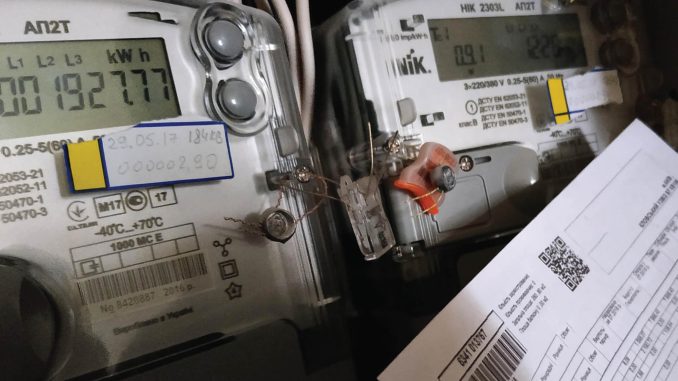
Smart meters provide an excellent solution for increasing the operational efficiency of discoms. Increased acceptance by discoms due to proven commercial benefits has translated into a huge market potential for smart meters. Distribution utilities have been installing smart meters under various government programmes such as the Integrated Power Development Scheme (IPDS), the National Smart Grid Mission (NSGM), the Smart Metering National Programme and the Ministry of Power’s smart grid pilots. In addition, certain states such as Uttar Pradesh, Bihar, Manipur and Tripura have taken up projects on their own. As per the NSGM dashboard, out of over 11 million smart meters sanctioned under various schemes, about 3.2 million have been installed as of November 29, 2021. Net metering is also gradually picking up in the power sector as consumers harness renewable energy sources, especially rooftop solar in order to reduce their energy bills.
Power Line presents a review of smart metering initiatives by select utilities…
Utility initiatives
With the installation of smart meters, there has been a higher revenue realisation (average monthly revenue per consumer) among utilities of Delhi, Uttar Pradesh and Bihar. So far, Bihar is the only state to implement smart metering in the prepaid mode, installing roughly around 0.2 million smart meters; the other 0.7 million meters are simple prepaid meters. Manipur has implemented over 0.3 million smart prepaid meters, while Tripura has close to 0.2 million prepayment meters. Meanwhile, Uttar Pradesh has 1.1 million meters and Indore (Madhya Pradesh) has over 0.2 million meters.
During the Covid-induced lockdown, billing efficiency of utilities with smart meters was higher at 95 per cent as against 71 per cent provisional billing in non-smart meter areas. The daily revenue collection of Bihar discoms during the lockdown was about Rs 0.5 million through smart prepaid meters. In March-April 2020, revenue collection in Bihar discoms increased by 12 per cent in smart meter areas, whereas it came down by 30 per cent in non-smart meter areas. In Bihar, over 0.166 million prepaid smart meters have been installed till now. Meanwhile, the per consumer per month revenue increased by 41 per cent and the billing efficiency increased from 69 per cent to 96 per cent. Arrears also continuously declined after the installation of smart meters as discoms were able to recover old arrears from consumers in instalments. Bihar discoms are not only charging consumers for excess consumption but also allowing them to enhance their load through the SUVIDHA app, developed by the Bihar discoms, without visiting offices.
In Indore, the Madhya Pradesh Paschim Kshetra Vidyut Vitran Company has installed around 0.12 million meters that have been running very successfully for the past three years. After initial troubles, consumer acceptability has increased and the state discom is in the process of installing around 0.35 million meters in different towns and then, there is another tender in the process for over 0.5 million meters. While installing these smart meters, attention needs to be paid to the service line as it is a costly affair. There are typical consumer resistance issues and suspicion that these meters would run fast, and therefore, the utility needs to overcome these challenges. In terms of communication technology for Indore, the GPRS technology was not very reliable. After experimentation, RF-based radio mesh canopy technology served the discom well, with a reliability of over 99 per cent. Indore’s experience also sheds light on the importance of having an efficient meter data management system.
In the case of BSES Rajdhani Power Limited, about 95 per cent of the utility’s connections are single-phase meters, 4 per cent are three-phase meters and 1 per cent are current transformer operated. The utility began replacing old meters with electronic meters as early as 2004 and completed the process by 2006-07. It has been downloading meter data by using a handheld device. The utility is selectively using smart meters based on its requirement and strategy. At present, street lights, government, temporary and tenant connections as well as high-loss areas have smart meters. Further, the utility is focusing on smart switchgear as well as DTR automation.
Meanwhile, Tripura State Electricity Corporation Limited has over 900,000 consumers connected to post-paid meters. In order to arrest high aggregate technical and commercial losses (24-25 per cent), the utility is planning to implement smart and prepaid metering. By now, it has installed 184,000 prepaid meters under the IPDS and the Deendayal Upadhyay Gram Jyoti Yojana, which has resulted in an increase in revenue collection by 24 per cent. About 45,000 smart meters were installed in the Agartala Smart Grid Pilot Project in 2014. In addition, it has placed an order for 100,000 prepaid meters and 200,000 smart meters would be installed under an upcoming Asian Development Bank project.
Further, Tata Power has installed 7,000 smart meters for its customers in Mumbai. With the installation of smart meters, the utility enabled its customers to view and optimise their electricity consumption in near-real time through its customer portal and a mobile app. Likewise, Tata Power Delhi Distribution Limited has installed over 200,000 smart meters across different consumer segments under its advanced metering infrastructure project with RF canopy network. The company also accrued various benefits during the Covid lockdown period, with smart meters helping to raise over 350,000 bills, based on actual readings instead of provisional ones during in April and May 2020, and prevented over 150,000 visits per month to consumer premises.
Conclusion
The real challenge with respect to smart metering remains integration with existing systems. Also, without proper consumer engagement, smart metering programmes often face challenges in terms of consumer acceptance. Hence, discoms must invest in the engagement of consumers to generate trust in these new systems and to ensure that the software developed to manage these meters is tried and tested.
Also, utilities realise that smart meters are not just hardware components but require an entire infrastructure, with all the associated processes, from meter reading to billing and payment, to be automated. Discoms need to choose the right communications medium that can be remotely and securely updated. Further, issues often arise during data integration from smart meters with the head-end system, the meter data management system, and the billing and collection software. It is important that the entire process is seamlessly carried out through the communication backbone and automated through cloud-based services.
On their part, state electricity regulatory commissions can safeguard consumers by revising their regulations to include specific details on performance standards for smart meters. Although there are various implementation challenges, a lot can be done to achieve the targets, keeping in mind investments and timelines for smart metering by utilities.
Going forward, the smart metering initiative by utilities will see an uptick as the recently launched Revamped Distribution Sector Scheme lays considerable emphasis on it. The scheme offers a grant of about 15 per cent from the central government as capex contribution with a ceiling of Rs 900 per meter for “other than special states”, which can go up to Rs 1,350 per meter in the case of special states. The grant can be further enhanced by 50 per cent in the case of completion of the projects by December 2023. With the government’s push, utilities are expected to completely transition to smart prepaid metering in the next few years.
(With inputs from Power Line’s webinar on Enabling Smart Meter Prepayment in India and a panel discussion among Rajesh Bansal, Senior Vice-President, BSES Rajdhani Power; Manoj Kumar Jhawar, Director – Commercial, Madhya Pradesh Paschim Kshetra Vidyut Vitran Company; and Debasish Sarkar, Director (Technical), Tripura State Electricity Corporation.)



